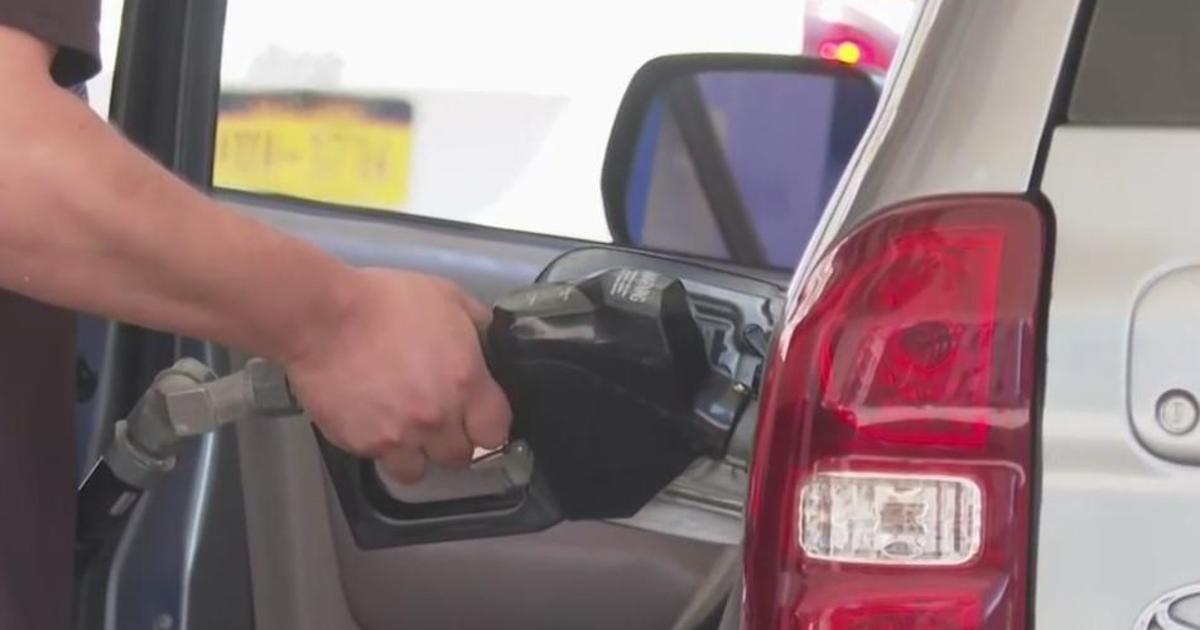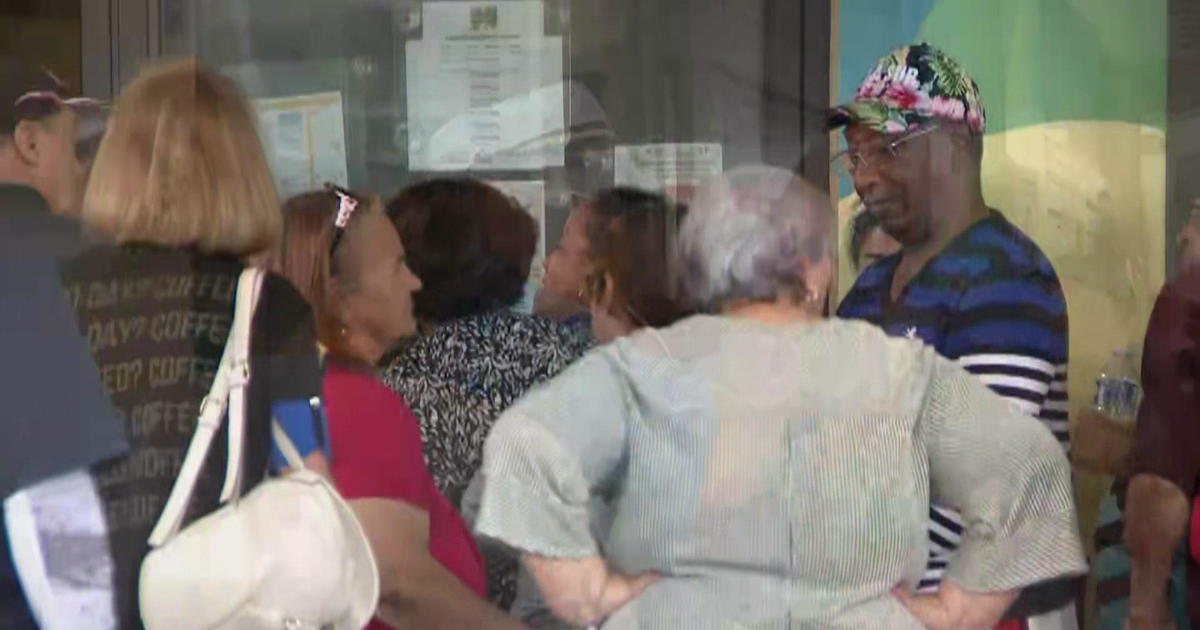Supply Chain Disruptions Blamed For Price Hikes At Grocery Stores, Restaurants & Gas Pump
MIAMI (CBSMiami) - These days you need more bacon, to bring home the bacon.
Prices on everything from meat to gasoline are rising rapidly in South Florida.
The Downing's say their grocery bill has doubled. "I see it in the cost of things like eggs, milk, cheese," said Donna Downing outside a grocery store in Fort Lauderdale.
Her husband Harold Downing, said he saw the situation when he went to buy a car. "There was no negotiating. You either pay the sticker cost or in some cases, people are paying more than the sticker price," he said. "We can afford things, but I feel sorry for the people who are scraping by," he says.
The consumer price index which tracks inflation tells the story.
In the last year, cereal and bakery goods rose 2.7 percent in cost. Meats, poultry, fish, and eggs were up a whopping 10.5 percent and fruits and vegetables were up three percent.
Cornelius Bosket showed us a small cart full of basics he had bought at a Fort Lauderdale Target on Thursday. His bill was more than $120.
Besides the cost of basics, he says he's really noticed the jump in gas prices over the past month.
He drives a Chevy Impala and says he's planning his routes more carefully and trying to drive less.
"It used to cost me $40 to fill up. Now, it's costing me $60 to fill up," he says.
Price increases are being served up at restaurants too. Even as they try to slowly recover from the devastating impact of the pandemic.
At John The Baker restaurant in Pembroke Pines, they have reluctantly increased prices on pizza and their world-famous garlic rolls.
"Flour is up 25 percent and the price of garlic went from $40 dollars to $120 dollars a case," he says.
Experts say the pandemic has caused disruptions in the supply chain and that has led to the surge in prices.
But some say the government has played a role too.
"When you flood the economy with stimulus money and it isn't backed with real economic growth it creates inflation," said FAU School of Business professor Siri Terjessen.
Terjessen says the way to handle runaway inflation is to "not buy things you can't afford."
Some economists predict that inflation will continue for the next couple of years.
Terjessen says she is more optimistic but thinks Washington lawmakers should be more mindful of runaway spending.
"If you had a family member who was spending wildly, you would do what you could to help them control their spending," she said.



